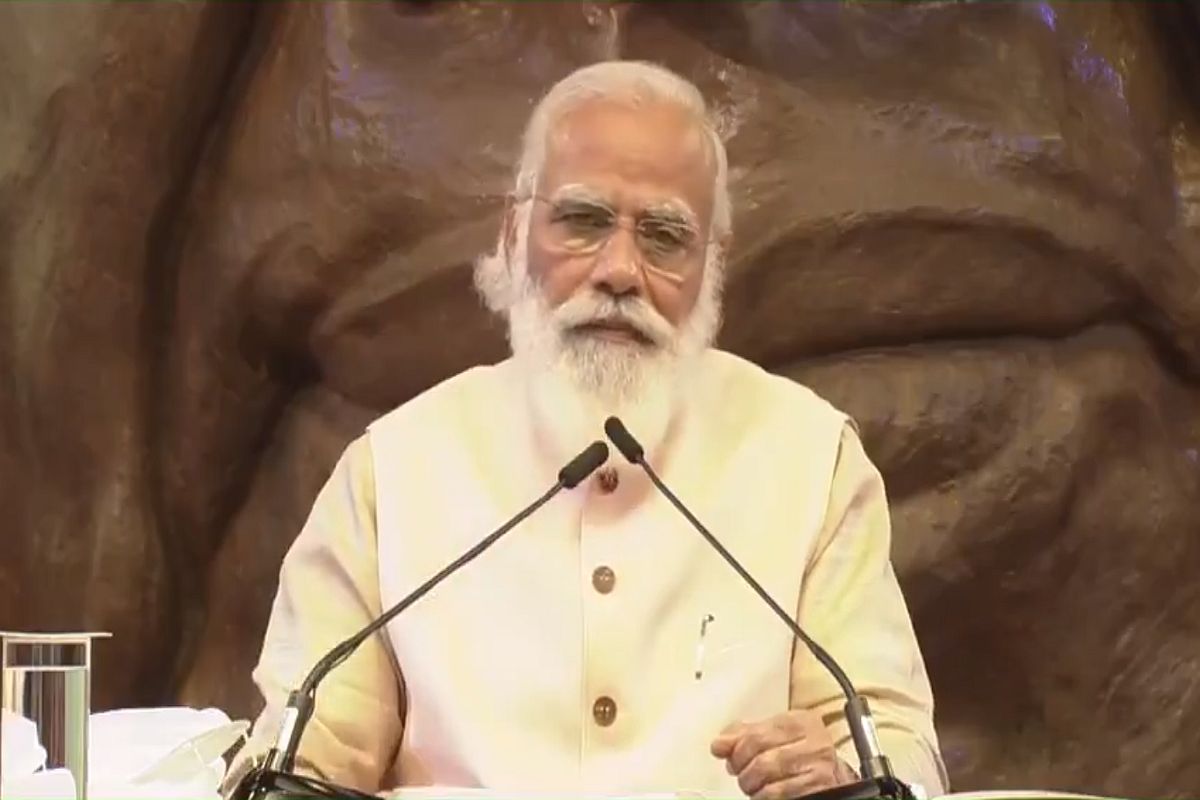Pakistan rejects US report on human rights practices
This year's report is once again conspicuous by its lack of objectivity and politicization of the international human rights agenda, it added.
Since 2011, she has been consistently against sharing of the waters of Teesta primarily because it would hit agriculture in North Bengal, where the Trinamul Congress has been trying to sustain its base.

(Screengrab: Twitter/@narendramodi)
Quite the most striking feature of the grandstanding on the 50th anniversary of India’s war with Pakistan and the creation of Bangladesh was Thursday’s virtual summit between the two Prime Ministers ~ Narendra Modi and Begum Hasina.
India has reaffirmed what it calls the “neighbourhood first” policy, which could play a pivotal role in area studies, and most particularly within South Asia. “India is our true friend,” declared Hasina and Mr Modi has reciprocated the bonhomie by offering to Bangladesh the Covid vaccine when it is manufactured in India.
Of a piece with this renewal of cordiality, that dates back to 1971, is Mr Modi’s “sincere commitment” to complete the interim water-sharing arrangement for the Teesta river. The Prime Minister’s signal of intent comes nearly a decade after the Bengal chief minister, Mamata Banerjee, decided to be a noshow at the airport’s check-in-counter for the flight to Dhaka. Small wonder that then Prime Minister Manmohan Singh drew a blank in the face of Miss Banerjee’s stout objection.
Advertisement
Since 2011, she has been consistently against sharing of the waters of Teesta primarily because it would hit agriculture in North Bengal, where the Trinamul Congress has been trying to sustain its base. Very pertinently has Mr Modi dwelt on the land boundary issue while referring to what he called the “significant pillar” of India’s “Neighbourhood First” policy.
Also to be strengthened are connectivity, trade, cultural cooperation and border management. Both countries are acutely aware that the last has been a particularly thorny issue since 1979 when the “quiet influx”, as this newspaper had then described it, had set in from the eastern flank.
And it persists to this day with militants crossing over from Bangladesh to India… as often as not for safe passage to Kashmir.
For all that, a paradigm shift in foreign policy cannot arguably be expected quite yet. It will not be easy to take Miss Banerjee on board ahead of the state Assembly election; for one thing, it can only exacerbate the increasingly bitter infighting within her party. Significant nonetheless is the impetus to connectivity, most particularly the inauguration of the Chilahati (Bangladesh) to Haldibari (India) rail link. It is fervently to be hoped that five of the six pre1965 rail links will become operational.
Fifty years after the creation of Bangladesh, the bilateral bonhomie is suitably critical not the least because Pakistan is attempting to improve ties with Bangladesh. Furthermore, China has been trying to rope in Dhaka to its strategic planning.
The geostrategic overtures have clearly not deterred the Hasina government from concluding as many as seven agreements with India on a single day. The bonhomie is reinforced with the joint decision to celebrate 50 years of friendship. Towards that end, Mr Modi will visit Bangladesh next March to join the celebrations of the 50th anniversary of the neighbour’s independence and 50 years of bilateral diplomacy.
Both countries are riveted to brasstacks, and not peripheral issues like hilsa diplomacy.
Advertisement